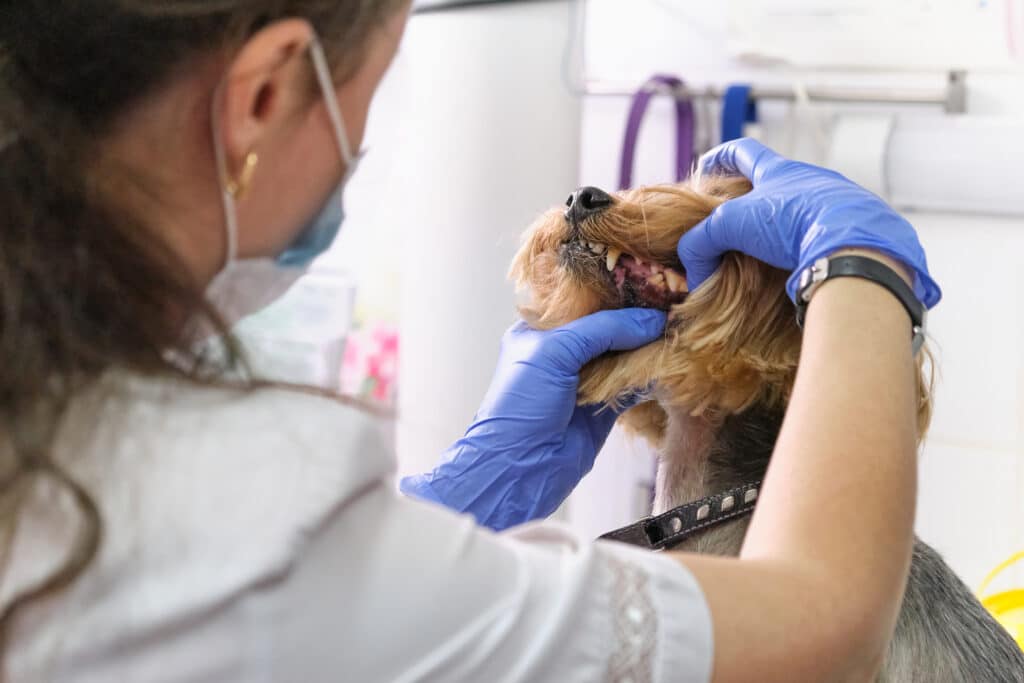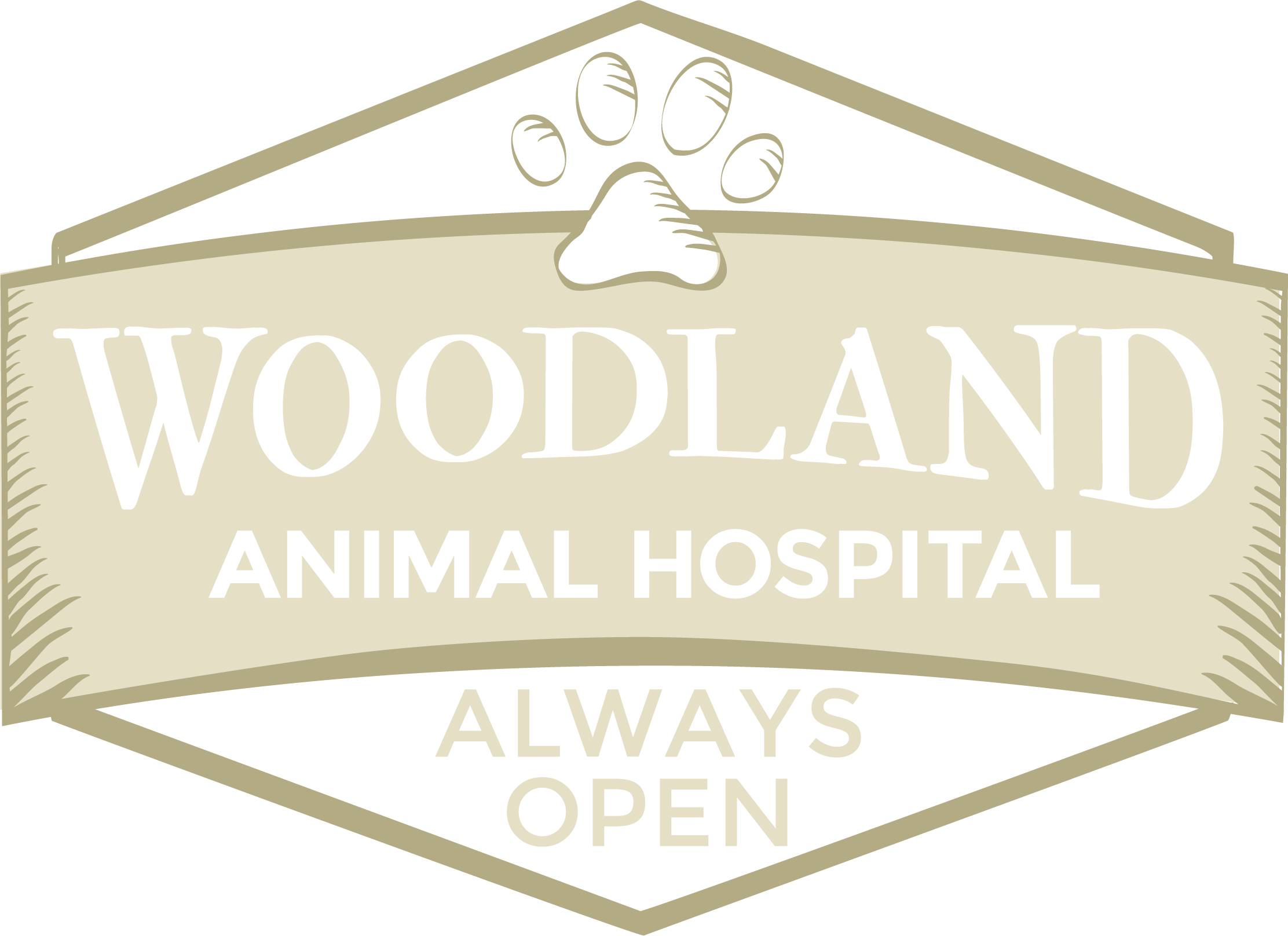When it comes to the health of our beloved dogs, understanding and effectively managing dental conditions like stage 4 periodontal disease is essential. Periodontal disease, particularly in its advanced stages, can be a significant concern for dog owners. This blog will explore the critical aspects of stage 4 periodontal disease in dogs, including its symptoms, risks, treatment options, and the importance of prompt veterinary care. At Woodland Animal Hospital in Locust Grove, GA, our team is dedicated to providing the best care for your dog’s dental health. If you’re concerned about your dog’s dental health, please call us at (770) 467-3140 or request an appointment online.
Symptoms of Stage 4 Periodontal Disease in Dogs
Understanding the symptoms of stage 4 periodontal disease in dogs is vital for early intervention. This advanced stage is characterized by the following:
- significant gum recession
- deep pocket formation
- Tooth mobility or loss
- Bad breath
- Difficulty eating
- Visible plaque or tartar buildup
- Signs of discomfort or pain (e.g. pawing at the face or mouth)
It’s crucial to recognize these symptoms early to provide your pet with the necessary care.
Risks of Stage 4 Periodontal Disease in Dogs
Stage 4 periodontal disease in dogs carries several risks. It can lead to severe infections in the mouth, loss of teeth, and can even affect overall health. Bacteria from the mouth can enter the bloodstream which may potentially affect major organs like the heart and kidneys. Early detection and treatment are essential to reducing these health risks and maintaining your dog’s quality of life.
Treatment Options for Stage 4 Periodontal Disease
When it comes to treating stage 4 periodontal disease in dogs, professional veterinary care is essential. Treatment may involve deep dental cleaning, tooth extractions, and possibly surgery. Antibiotics and pain management may also be necessary. Each case is unique, and our team at Woodland Animal Hospital tailors the treatment plan to your dog’s specific needs.
Seeking Professional Veterinary Care
Knowing when to seek professional veterinary care is crucial. If you notice any symptoms of periodontal disease, it’s important to schedule a visit with your veterinarian immediately. Early intervention can prevent further progression and complications. Our skilled team at Woodland Animal Hospital is ready to provide the best possible dental care for your dog.
The Importance of Prompt Veterinary Care
Prompt veterinary care is key in managing stage 4 periodontal disease effectively. Timely treatment can alleviate pain, prevent tooth loss, and reduce the risk of infection spreading to other parts of the body. Regular veterinary check-ups play a vital role in early detection and treatment of dental diseases.
Preventing Stage 4 Periodontal Disease in Dogs
Preventing stage 4 periodontal disease involves consistent and thorough dental care. Here’s a detailed guide to help you maintain your dog’s oral health:
- Regular Brushing: Brush your dog’s teeth daily using a dog-specific toothbrush and toothpaste.
- Dental Check-ups: Schedule regular dental check-ups with your veterinarian.
- Healthy Diet: Feed your dog a balanced diet and consider dental-friendly treats.
- Dental Chews and Toys: Use dental chews and toys designed to reduce plaque and tartar buildup.
- Early Intervention: Address any dental issues promptly by visiting your veterinarian.
Remember, early prevention is key to avoiding advanced dental diseases in your dog.
Nurturing Your Dog’s Dental Health Together
It’s clear that managing stage 4 periodontal disease in dogs requires a combination of professional veterinary care and dedicated home practices. At Woodland Animal Hospital, we’re committed to partnering with you in this journey, offering expert guidance and compassionate care every step of the way. Remember, maintaining your dog’s dental health is not just about treating existing conditions, but also about preventing future issues. With regular check-ups, proper dental hygiene practices at home, and a keen eye for early symptoms, we can work together to ensure your dog enjoys a happy, healthy life. For any concerns or to schedule an appointment, please reach out to us at (770) 467-3140 or visit us online. Your dog’s dental health is our top priority, and we’re here to support you both.





